Part 14: Chapter XIV: A Five Year Truce (1916-1921)
Chapter XIV: A Five Year Truce (1916-1921)Good afternoon, Secretary of State Thomas. I trust all went well on your Transatlantic voyage? Here for the upcoming fifth anniversary armistice memorial service for...the unpleasantness a few years ago, I hear. Well, let me reassure you that the South German Federation has climbed out of the gutter and is able to say to those brave men who died in that terrible conflict that the SGF has pulled back from the brink and is able to stand with countries like your own great republic at the top of world affairs. Would you care for a summary as to how this has happened?

As you'll recall, at the end of the last Great War, we had only a ragtag army left and had been forced to dismantle nearly all of our tonnage on the sea. Our allies were still powerful enough to send Italy running with a slap on the wrist (the destruction of a massive naval base in Ancona and the agreement to leave Rome unfortified and helpless). SGF was at peace, but was a devastated ruin. Russia stood ascendant, the beneficiary of NGF's strength in arms, and had gained all of Galicia. SGF, Hungary, and Ruthenia were all defenseless, chaotic messes, and Russia had only one remaining worry: your country. Truth be told, though few in SGF could have found Alaska on a global map before, everyone in the country was rooting for your victory over Russia in that frozen wasteland, as some sort of a setback for the seemingly-unstoppable Tsar.
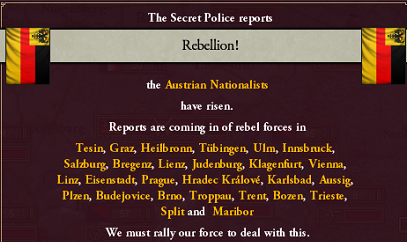


What was left of our army promptly spent the year following war's end putting down rebellions at home and abroad, preventing a coup against our puppet regime in Hungary.


There were a great many of them. Our country's working-age male population decreased by 200,000 during those 18 months. It's amazing how fast population recovered after that grievous loss.

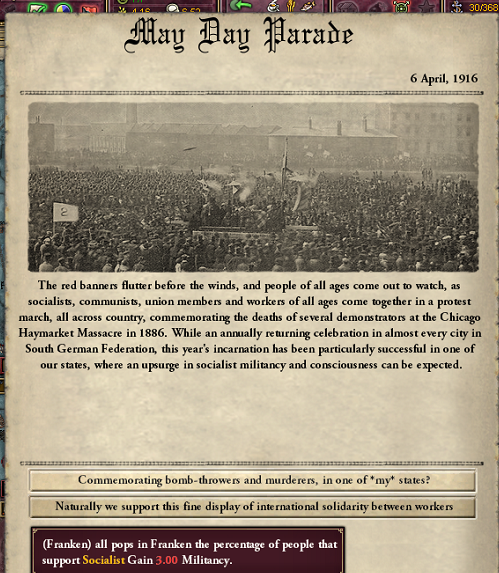
The gendarmes walking the street may be intimidating, my dear Secretary, but I assure you their presence serves a reason.


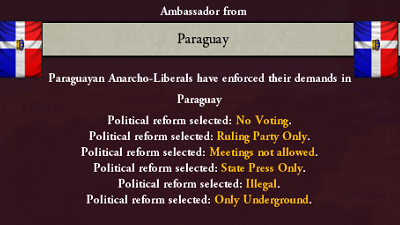
One does not have to look far to see the results of not defending one's country from angry mobs.
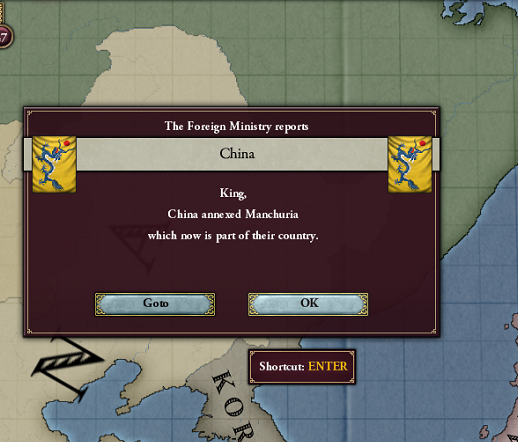

The Chinese made one move too many and provoked the Russian bear. As your country was still at war with Russia at the time, I'm sure you were as thrilled, then horrified, as we were at the Second Sino-Russian War.

Truly, the late 1910s were the height of global Russian power, only offset by one setback:
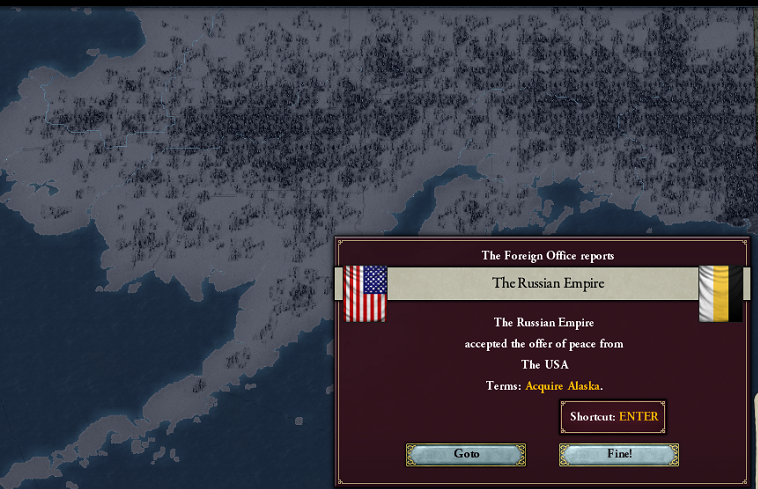
Well done indeed, Secretary Thomas. The moment of hope we all needed in the face of Russian global ambitions.

The Hawk lobby decided to tolerate (for now) a return of the anti-military Socialists to power in hope that their full citizenship strategies would lead to South German subjects, German or not, to rally behind the flag. Should that have failed, we were, sad to say, prepared for a coup. However, much like the success of Socialism in the United States, it cured many of SGF's ills, though the people still wish they were a bit more jingoistic.
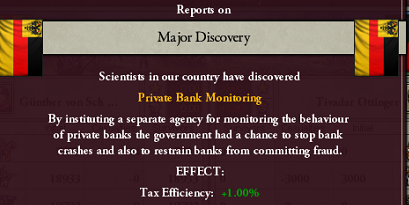
The government believes that if you monitor banks, you can prevent catastrophic financial collapses when the banks overextend. Regulation of the financial sector is clearly the key to preventing disastrous financial bubbles: it's not like the regulators will simply become indistinguishable from the bankers through regulatory capture and cease to be effective watchdogs, right? That would be ludicrous!



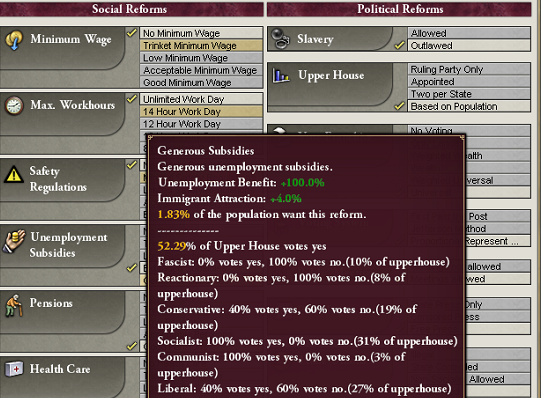
The Socialists promptly took action to address the needs of the countless left jobless due to displacement from the war.



The naval strategies grew more elaborate.

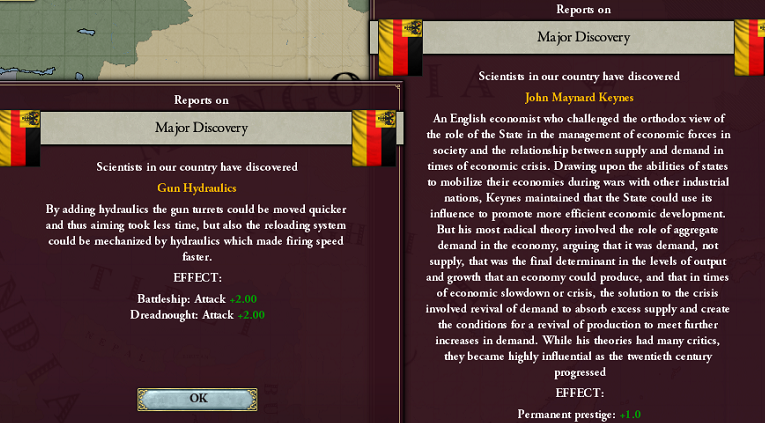
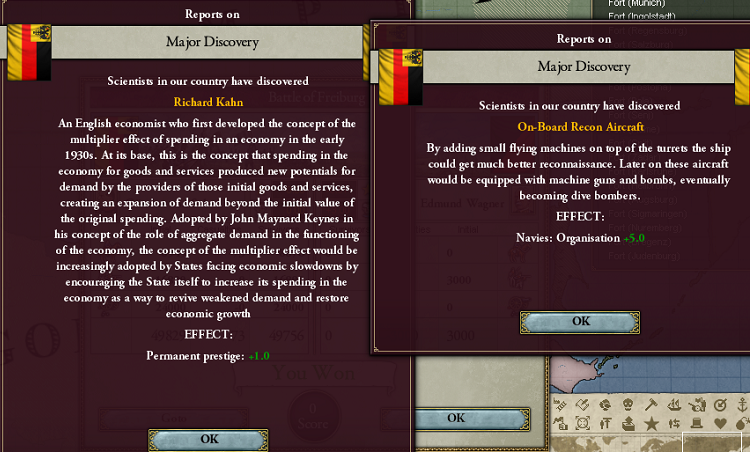

Finer ships, finer crew.
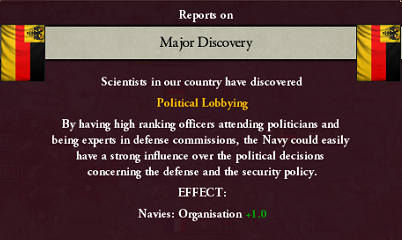
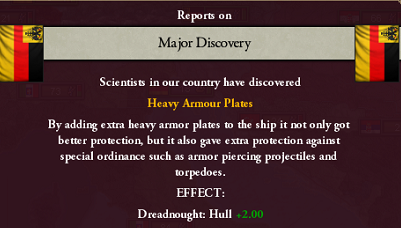


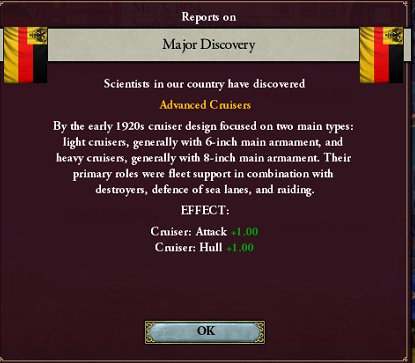

Even today, we don't have the finest navy in the world, yet, but it's rapidly approaching that point.
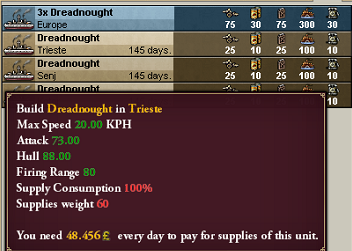

Let me show you the flagship of the SGF navy, the SMS Wagner. We felt that the name reflected the rich Bavarian cultural history as well as a future of militarism worthy of the legend of Siegfried. With 73 big guns, the Wagner is undisputed king of the sea. Trieste's port is the finest I've seen in the entire world, as well it should be...it certainly cost enough.
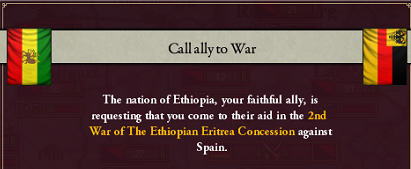
Of course, while our army and navy were still rebuilding, we found ourselves at war with the Kingdom of Spain over Spain's interest in seizing the port of Djibouti and landlocking Ethiopia. This war would prove the trying grounds of the strategies we would later employ to such great effect.

Of course, the British initially took the lead in the war, but we played our part in beating the Spaniards off the beaches of Dalmatia. Eventually we became more adventurous and attempted a landing in Spain.
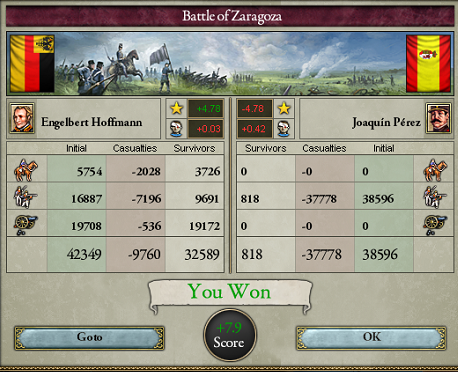

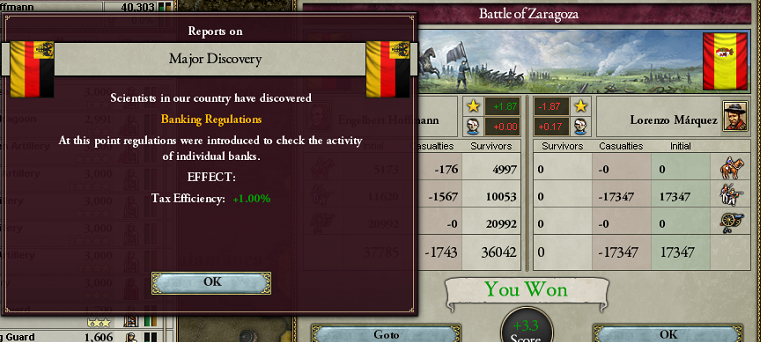
Zaragoza was the first major encounter with a military force not made up of our own rebels since the humiliation of the war, and it was a rousing success. I cannot describe how much this did to restore national confidence, even though it was against an opponent with a deeply-antiquated military. We beat an enemy force, dislodged it, and then fought off its two sets of (tardy) reinforcements. After the failures of the previous war, this seemed brilliant.

I wasn't personally a fan of how the British decided to resolve the conflict, but a win's a win, right?

Those were interesting times in Latin America, as well. Bolivia has, of course, since recouped some of its losses.
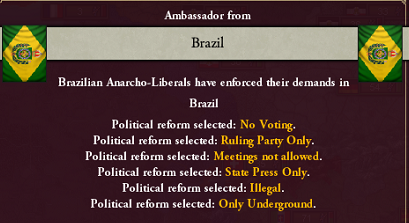
With the end of British protection of Brazil, Colombia also seized some of its old land back.
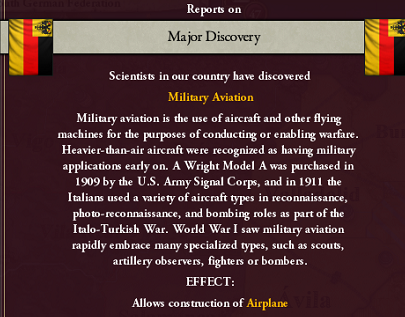
I have fond memories of the 1920 US Army Air Show here. As advanced as our aviation industry has been, your country beat us to figuring out how to militarize planes. We certainly have caught up since then.
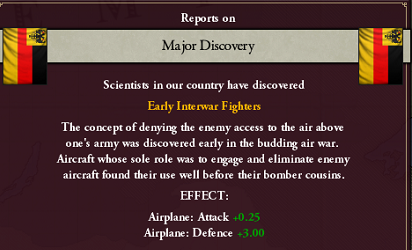
That was a fun day. I remember the band playing while the planes flew overhead...

Why yes, John Philip Sousa himself was present.

I know some people love Stars and Stripes Forever, but The Liberty Bell is my favorite Sousa composition. Either way, your Sousa certainly is a unique American contribution to world music...it's a shame that our German jazz never caught on in your country. I've always felt that jazz was too cerebral for American populist tastes, perhaps jazz can never truly flourish outside of Munich. But I digress...

I'm a Keynes man myself, of course, but the Liberals have fallen for this man. I apologize for unleashing him on the world.

They're doing astonishing things up north these days. It's a shame Sweden went liberal so early and allowed its industrial sector to be wiped out, otherwise they could have been a contender.


Would you believe just the other month we threw some lunatic in prison for trying to coup the government from a beer hall here in Munich? His autobiography is selling like hotcakes.
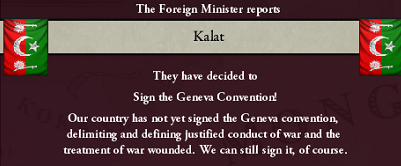
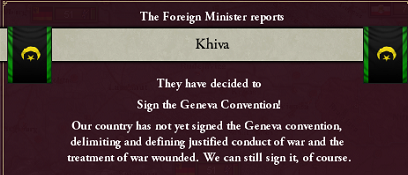
Asia awakens, the world trembles...I believe that was the saying.

Rump Sokoto awakens, the world yawns.

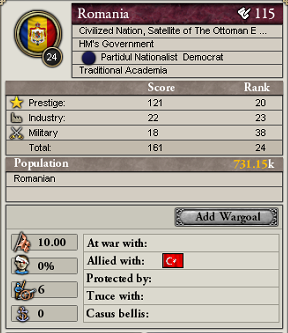
You know the story, right? Rebels stormed Iazi and demanded that the Prince of Moldavia cede his country to the Prince of Wallachia, and the Moldavian prince couldn't resist because his army was vacationing in some godforsaken place in southern Greece? Romanians everywhere became agitated, but in the end, the King of Wallachia remains a vassal of the Ottoman sultan and unable to pose much of a threat to Hungary or Ruthenia. I remain content that no further trouble will come on the Romanian front.
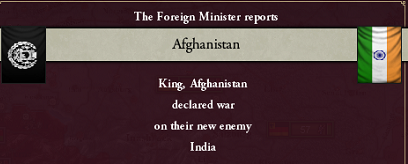
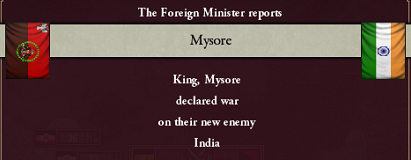
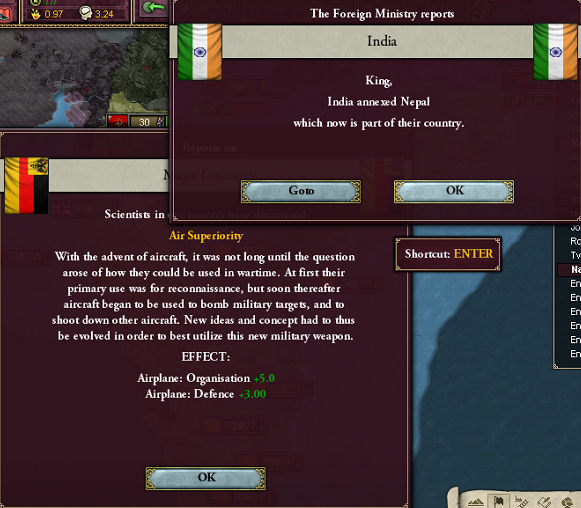

The Afghans continue to press towards Delhi while Mysore consolidates its power in the subcontinent.

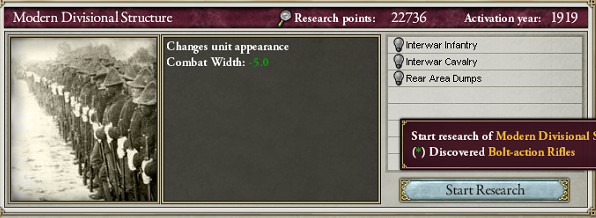
A cutting-edge army is always critical...one never knows what threats may lurk.
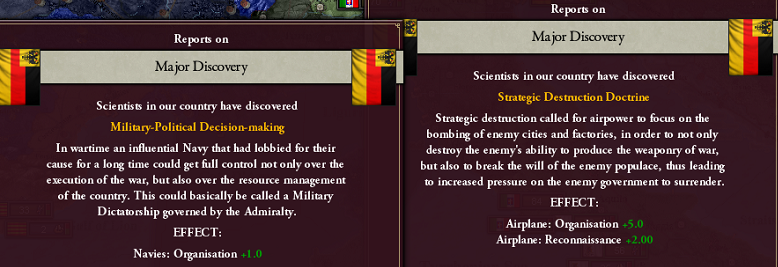


At any time, something might happen that would change the world forever.

...I believe our time is up, sir. It has been a pleasure and let me advise you to add Istanbul to your itinerary...it is the only place in Europe you can go to get away from these damned shells.